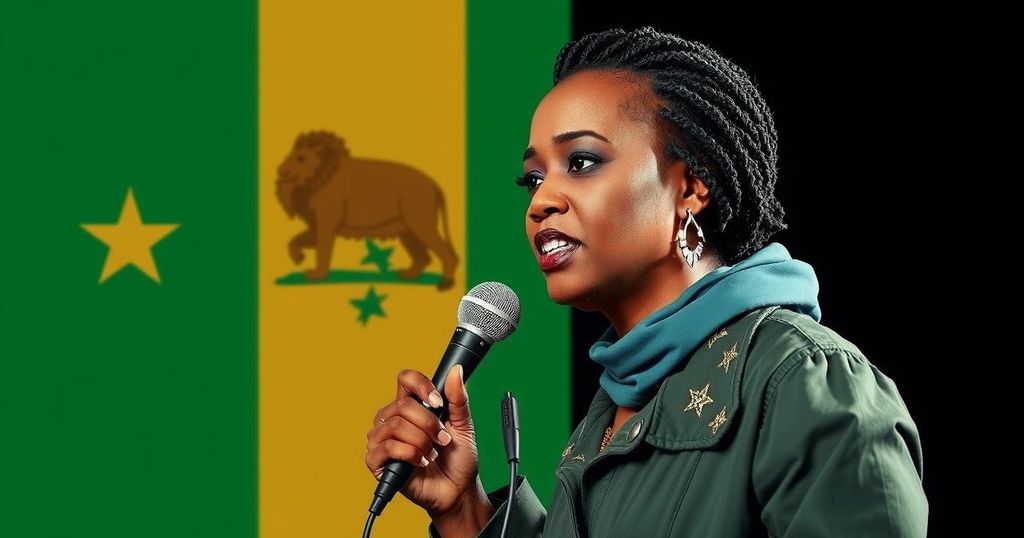Namibia may elect its first female president, Vice President Netumbo Nandi-Ndaitwah, in Wednesday’s elections. Around 1.4 million have registered to vote for 15 parties amid scrutiny over governance issues affecting SWAPO, the leading party. Key campaign issues include unemployment, women’s rights, and transparency. The electoral results will significantly influence Namibia’s political future and female representation in leadership roles.
Namibia stands on the brink of potentially electing its first female president in an upcoming election scheduled for Wednesday. The Vice President, Netumbo Nandi-Ndaitwah, is in the running and currently enjoys support, as indicated by previous special polls held for specific voter groups. Approximately 1.4 million Namibians have registered to participate in the elections, with 15 political parties vying for the presidency and seats in the National Assembly.
The leading party, the South West Africa People’s Organization (SWAPO), has faced challenges following a significant decline in its parliamentary majority after the 2019 elections, attributed to corruption scandals. Political analysts have advised the party to prioritize engagement with the younger voter demographic, who demand evidence-based governance rather than emotional ties to past liberation struggles. Nandi-Ndaitwah, who is 72 years old, has outlined ambitious plans to address unemployment among the youth, proposing substantial financial investments to foster job creation, though critics consider these goals overly optimistic.
Key voter concerns include women’s rights, healthcare access, and reproductive rights. If elected, Nandi-Ndaitwah would join the ranks of other prominent female leaders in Africa, such as Ellen Johnson Sirleaf of Liberia. Political experts have emphasized the necessity for her to adopt a transparent and accountable administration, enhancing women’s participation in politics. SWAPO will contend with opposition from parties like the Independent Patriots for Change and the Affirmative Repositioning party, as political dynamics across southern Africa continue to evolve, seen in recent shifts in neighboring nations’ electoral outcomes.
The elections carry significant weight for Namibia’s democratic ethos and governance future, reflecting broader themes of accountability and women’s empowerment in political leadership.
The article discusses the imminent presidential elections in Namibia, marking a historic opportunity to elect the country’s first female president. The political landscape has shifted notably since the 2019 elections, highlighting issues of governance, corruption, and the integration of younger voters into the electoral process. The challenges facing SWAPO, Namibia’s ruling party, underscore the changing dynamics of public support and the necessity for political reform towards transparency and accountability. Moreover, women’s rights and youth unemployment are critical issues shaping electoral discourse.
In summary, Namibia may soon elect its first female president, with Vice President Netumbo Nandi-Ndaitwah positioned as a leading candidate. The elections highlight not only the potential for historical change in leadership but also the significant challenges faced by political parties in engaging younger voters and addressing pressing social issues. The outcome of this election will not only shape the future of Namibia but may also reflect broader changes within the region’s political landscape.
Original Source: abcnews.go.com







